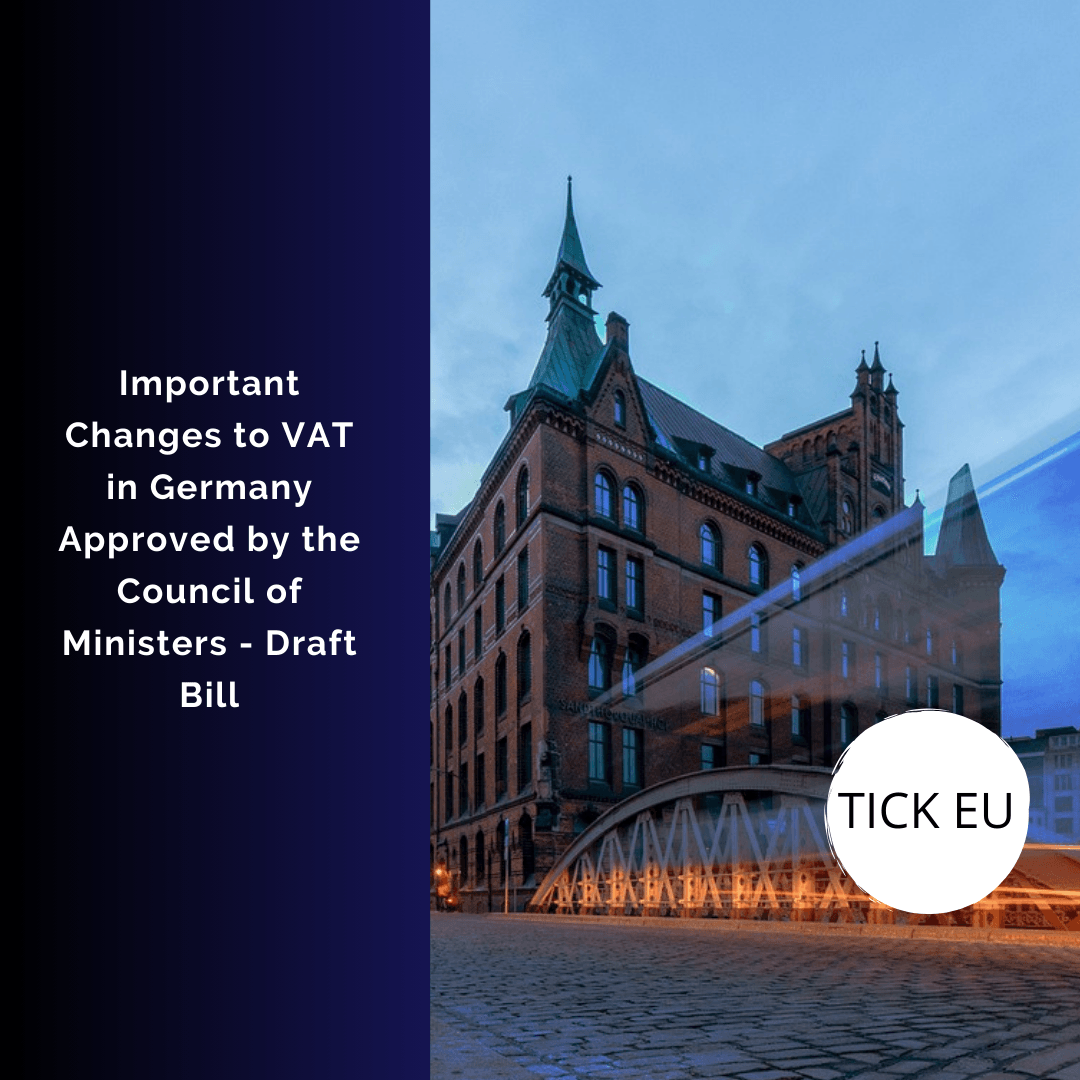On June 5, 2024, the federal government approved a draft governmental bill (available only in Germany) regarding the annual income tax for the year 2024, which includes several significant proposed changes to German tax legislation. The legislative process is expected to be completed by the end of 2024.
Below are the key proposed changes to the current German VAT regulations:
Appropriate Timing for Input Tax Deduction and New Mandatory Invoice Data
Starting January 1, 2026, new regulations will define the timing for input tax deductions. According to these provisions, the period during which the recipient can deduct input tax will depend on whether the supplier uses the standard calculation method, cash accounting, or the advance payment basis as follows:
- If the supplier calculates VAT using the standard method, the recipient may deduct the input tax at the time of the goods delivery or service provision by the supplier.
- If the supplier uses cash accounting, the recipient will have the right to deduct the input tax at the time of payment.
- For advance payments, input tax deduction will be possible at the time of the prepayment.
In addition to clarifying the timing of input tax deduction for cash transactions, the bill introduces a new mandatory element on invoices. The requirement to include the phrase “Tax calculated based on received compensation” on relevant invoices informs the recipient about the supplier’s chosen calculation method, facilitating the recipient’s determination of the input tax deduction timing. These new rules would apply to invoices issued after December 31, 2025.
Input Tax as a Secondary Method of Tax Division
According to the general rule, if taxpayers purchase goods or services used for both deductible and non-deductible supplies, they must divide the input tax amounts into deductible and non-deductible portions. Under the proposed changes, calculating the non-deductible input tax using the “total turnover” method will only be permissible when no other, more precise methods of division are available. These new rules are set to come into effect the day after the announcement of the VAT annual tax law for the year 2024.
Future changes to VAT regulations aim to harmonize national rules with EU guidelines and judgments of the Court of Justice of the European Union. Planned for January 2025, new rules regarding the place of supply for B2C virtual services shift the point of taxation to the location of the recipient’s establishment or residence, rather than the location of the event itself. This move aligns with EU VAT standards, aimed at simplifying the taxation of consumer services in the country of consumption.
Other proposals, such as extending VAT exemptions to credit management by creditors or adjusting exemptions for educational services to EU standards, were also slated for implementation in 2025 but were rejected due to concerns about tax revenue impact. Similarly, the planned reduction of the VAT rate to 7% for the trade of works of art from January 2025 aims to promote this sector, although it excludes the rental of these goods.
As part of support for small businesses, changes to national thresholds for the VAT program aim to facilitate operations in the EU market while streamlining tax procedures.
These changes represent a step toward greater consistency and transparency in VAT regulations, benefiting both businesses and tax authorities alike.


